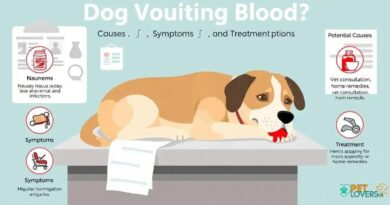What is Zero-Fat Dog Food
What is Zero-Fat Dog Food?
Zero-fat dog food refers to a specialized type of canine diet that contains no fat content, aiming to provide a balanced nutritional profile without the inclusion of fats. This type of food is often formulated for dogs that require strict dietary management due to health issues such as obesity, pancreatitis, or certain metabolic disorders. By eliminating fat, these diets help in controlling calorie intake while still delivering essential nutrients, ensuring that dogs maintain their energy levels and overall health.
Benefits of Zero-Fat Dog Food
One of the primary benefits of zero-fat dog food is its ability to aid in weight management. For dogs that are overweight or prone to gaining weight, a diet devoid of fat can help reduce caloric intake significantly. Additionally, this type of food can be beneficial for dogs recovering from surgery or those with specific health conditions that necessitate a low-fat diet. The absence of fat also means that these foods are less likely to contribute to gastrointestinal issues, making them easier to digest for sensitive dogs.
Ingredients in Zero-Fat Dog Food
Zero-fat dog food typically includes high-quality protein sources such as chicken, turkey, or fish, along with a variety of vegetables and grains. These ingredients are carefully selected to ensure that the food remains palatable and nutritious despite the lack of fat. Common additives may include vitamins and minerals to support overall health, as well as fiber sources to promote healthy digestion. It’s essential to read labels carefully to ensure that the food meets the specific dietary needs of your dog.
How to Transition to Zero-Fat Dog Food
Transitioning your dog to a zero-fat diet should be done gradually to avoid digestive upset. Start by mixing a small amount of the new food with your dog’s current diet, gradually increasing the proportion of zero-fat food over a week or two. Monitor your dog’s response during this transition period, looking for any signs of gastrointestinal distress such as vomiting or diarrhea. If any adverse reactions occur, consult your veterinarian for guidance on the best approach to dietary changes.
Potential Risks of Zero-Fat Dog Food
While zero-fat dog food can be beneficial for certain dogs, it is not suitable for all canines. Dogs require a certain amount of fat in their diet for healthy skin, coat, and overall vitality. Prolonged feeding of a zero-fat diet can lead to deficiencies in essential fatty acids, which can result in health issues such as dry skin, poor coat quality, and decreased immune function. Therefore, it is crucial to consult with a veterinarian before making any significant changes to your dog’s diet.
Zero-Fat Dog Food vs. Low-Fat Dog Food
It is important to differentiate between zero-fat dog food and low-fat dog food. While zero-fat food contains no fat at all, low-fat dog food typically contains a reduced amount of fat compared to standard dog food. Low-fat options can still provide essential fatty acids necessary for a dog’s health, making them a more balanced choice for many dogs. Understanding the specific needs of your dog will help you choose the right type of food for their dietary requirements.
Popular Brands of Zero-Fat Dog Food
Several brands specialize in producing zero-fat dog food, catering to the needs of dogs requiring strict dietary management. Brands like Hill’s Prescription Diet, Royal Canin, and Purina Pro Plan offer specially formulated zero-fat options designed to support dogs with specific health conditions. When selecting a brand, it is essential to consider your dog’s individual health needs and consult with your veterinarian to ensure you are making the best choice.
Homemade Zero-Fat Dog Food Recipes
For pet owners interested in preparing homemade meals for their dogs, creating zero-fat dog food is possible with careful planning. Recipes can include lean meats such as chicken breast or turkey, combined with vegetables like carrots and peas, and grains like brown rice or quinoa. It is vital to ensure that the homemade diet is balanced and meets all of your dog’s nutritional needs, so consulting with a veterinary nutritionist is highly recommended before making homemade meals a regular part of your dog’s diet.
Monitoring Your Dog’s Health on a Zero-Fat Diet
Regular monitoring of your dog’s health is crucial when they are on a zero-fat diet. Keep an eye on their weight, energy levels, and overall condition. Regular veterinary check-ups can help assess whether the diet is meeting their nutritional needs and if any adjustments are necessary. If you notice any changes in your dog’s behavior, appetite, or health, it is essential to consult with your veterinarian promptly to address any potential issues.



